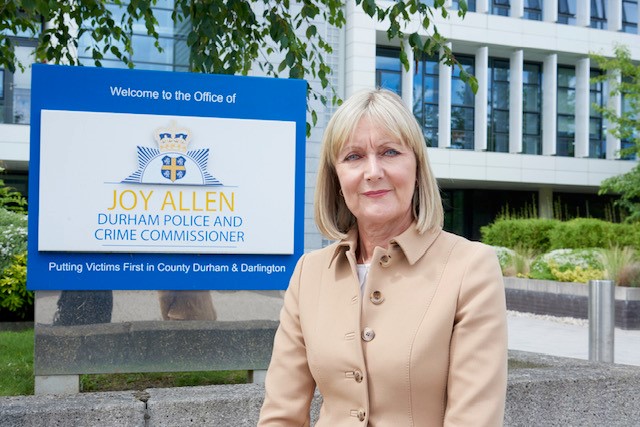Be on the lookout for signs of modern day slavery.
Last month, during Anti-Slavery Week, I announced dedicated funding to train front line responders to become Anti-Slavery Champions.
The three year partnership project will be delivered by the County Durham Anti-Slavery Network. The Anti-Slavery Champions will act as a single point of contact across the Durham force area and within their own organisations, providing advice and guidance to their peers and improving the response to victims of slavery and human trafficking.
Sadly, we know only too well that adults and children are being exploited in unthinkable ways across the country, and it is imperative we do all we can to get them the help and support they need to safely escape harm.
Victims of crime are at the heart of my work as Commissioner, and I am grateful to the work of the network and partners in addressing the risks and exposing these complex crimes so victims can continue to get the help and justice they deserve.
My announcement followed a report from the Anti-Slavery Network that showed that although there has been a slight reduction in the overall number of modern slavery offences in Durham and Darlington compared to 2022/23 the proportion of sexual slavery had increased from 42% in 2022/23 to 50% in 2023/24.
Modern slavery can happen anywhere – cities, towns, villages, rural areas. It is present in every single area of the UK and is on the increase.
There is no typical victim of slavery. Modern slavery can affect anyone in society. Victims can be men, women and children of all ages and cut across the population. The Global Slavery Index believes there are at least 136,000 victims living in slavery in the UK.
Many slavery victims work in the construction industry, in agriculture, in the sex industry, and in places like nail bars, car washes, and cannabis farms. Children are found working in all of these situations, as well as in sexual slavery.
Victims of modern-day slavery can be kept in houses, flats or other dwellings. Being vigilant and reporting your suspicions can help us protect victims, pursue those responsible and bring them to justice.
By recognising the signs of exploitation and knowing where to report concerns you can play a vital role in making our communities safer, stronger and more secure.
Signs to look out for on your street:
• The property seems too small for the numbers of people that live there
• People appear to be bundled in and out of the property by others, often during darkness.
• There are bars on the windows and/or the curtains are permanently drawn or boarded up
• Large numbers of young women have suddenly been moved into the property, which then receives lots of visitors day and night
• The letterbox has been sealed over
• There is CCTV at the entrance to the property
• The pungent smell coming from the property
If you suspect modern slavery, report it to the Modern Slavery Helpline on 08000 121 700 or the police on 101. In an emergency always call 999. Don’t leave it to someone else. Your information could save lives! You do not need to be certain to report your concerns. By working together, we can crack down on the heinous slave trade and ensure no victims is subjected to slavery and exploitation.
Joy Allan County Durham Police and Crime Commissioner










